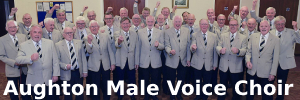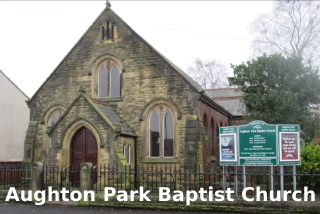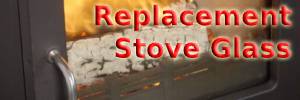Some £15.7 million was raised last month when people tuned in to watch Stand Up To Cancer to support pioneering new clinical trials.
Launched in the UK in 2012, Stand Up To Cancer, a joint fundraising campaign from Cancer Research UK and Channel 4, has already raised more than £25 million to fund transitional research, which takes developments in the lab and transforms them into brand new tests and treatments for cancer patients.
Locally, more than £250,000 from Stand Up To Cancer is helping to fund a clinical trial testing a treatment to prevent jaw bone damage in head and neck cancer; around 110 people are diagnosed with head and neck cancers in Liverpool every year, and around 35 people die from head and neck cancers in Liverpool every year.
An Ormskirk man who has survived this type of cancer got together with the Professor who successfully treated him to showcase where Stand Up To Cancer money is being invested in the North West.
Vet. Austin Kirwan, 53, knows full well the devastating impact of treatment for head and neck cancer.
Six years ago aged 47, he was suffering with an ulcer under his tongue which would not heal. When he cracked a tooth, he saw a dentist and mentioned the ulcer - the dentist immediately told him he was convinced it was cancer and he was booked in to see a team of specialists at Liverpool Dental Hospital including Prof Shaw.
A biopsy confirmed Austin had squamous cell carcinoma, a type of mouth cancer, despite being fit and never having drank alcohol heavily or been a smoker.
The father-of-three had to undergo more than eight hours of surgery which included 35 per cent of his tongue being removed, 14.5cm of the floor of his mouth being removed and skin and tissue from his right arm was used as a skin graft on his tongue.
Austin’s mouth was re-constructed and he had to breathe through a tube in his neck and be fed via a tube in his nose.
Fortunately, the cancer had not spread, but Austin has been left with no sensation on the left side of his mouth, his salivary glands have been affected and he can only speak from the right side of his mouth. He had to have speech therapy, learn to bite, swallow and chew once again and was off work for six months.
However he made a good recovery.
Austin told QLocal: “It was an absolute shock when the dentist was so convinced I had cancer. But it’s fortunate that he was on the ball as I had no symptoms at all apart from the ulcer.
“Being a medic proved a double-edged sword for me as I totally understood just how grave the situation was in terms of the type of cancer I had been diagnosed with and just how gruelling the surgery would prove.
“But I feel very lucky to be alive and blessed that I received such fantastic treatment in Liverpool. Any form of treatment, backed by research, which can help people affected by this type of cancer is to be welcomed.”
People with head and neck cancer often receive radiotherapy as part of their treatment and because tumours are near other organs, patients can be left with serious side effects. One of the most serious of these is irreversible damage to the jaw bone.
Professor Richard Shaw, based at the University of Liverpool, who treated Austin, is leading the HOPON clinical trial which is looking at whether giving high pressure (‘hyperbaric’) oxygen therapy prevents jaw bone damage after radiotherapy for head and neck cancer.
Hyperbaric oxygen treatment involves patients spending time in a special chamber for a period of time each day, where the oxygen is at higher pressure than in the air. The same type of treatment has previously been used in diving accidents, carbon monoxide poisoning and for people with wound healing problems.
It is believed increased oxygen re-invigorates damaged tissues and helps them heal quicker. And therefore might help repair jaw bones damaged by radiotherapy, preventing severe side effects for cancer survivors.
The North West’s only hyperbaric treatment centre is based at Spire Murrayfield Hospital in the Wirral, and the eight year study, which is the only one of its kind in the world, has recruited more than 150 patients at six centres across the UK.
Prof Richard Shaw said: “We have become better at treating head and neck cancer patients.
“But this success can come with a price. A long term survivor of head and neck cancer who had radiotherapy during the course of their treatment faces the risk of experiencing long term side effects.
“The most serious side effect is something called osteoradionecrosis (ORN).
“This is a condition affecting jaw bones that radiotherapy beams have shone through. The bones can be damaged by the radiotherapy and don’t heal as well as other tissues, because they have a limited blood supply. And the worst case scenario for this particular condition is where the bone dies completely.
“It affects patients who have been successfully treated for head and neck cancer and can occur anytime after radiotherapy – even 20 years later in some cases. While it can arise spontaneously, it usually develops following dental work, particularly tooth extractions or inserting implants. Loss of bone can lead to patients suffering jaw fractures, experiencing a lot of pain, or having holes appearing in their faces where the jaw bone has collapsed.
“Because more people are developing, and surviving, head and neck cancer, we’re seeing an increasing number of people with these long term side effects. We think around one in 10 patients who received radiotherapy to the head and neck develops ORN, but we need research to find out exactly how many patients are affected. And for many of these patients, treating it is worse than the original cancer treatment. So, as doctors, it’s something we’re desperately keen to avoid for our patients.
“In Liverpool in particular with such pockets of deprivation, there is a real issue with cancers in the head and neck which can be linked to smoking and alcohol use, so it’s great that we are leading the way in the same city to finding kinder treatments to stop patients with these types of cancers facing long term health problems.
“We are incredibly grateful to the funding from Stand Up To Cancer which has made this clinical trial possible and will make a real difference for patients in the future.”
The trial’s findings will conclude next year; for more information visit standuptocancer.org.uk
|
|
||||||
|
WANTED: YOUR NEWS AND STORIES FOR ORMSKIRK
Phone / Txt Roger on 0754 3955 841 Email local news to us including image(s) ormskirk@qlocal.co.uk Follow / Report to us on Twitter @QlocalOrmskirk
WANTED: YOUR NEWS AND STORIES FOR ORMSKIRK
Phone / Txt Roger on 0754 3955 841 Email local news to us including image(s) ormskirk@qlocal.co.uk Follow / Report to us on Twitter @QlocalOrmskirk 

Check Todays Deals on Ebay.co.uk Your Comments:
Custom Search

|
You are in:
UK /
Ormskirk / North West
Find any Town in the UK, or Use UK map Local Google MAP for Ormskirk Check Todays Deals On Amazon.co.uk Check Todays Deals on Ebay.co.uk 



Qlocal Supports Woodlands Animal Sanctuary 

 Be Seen - Advertise on Qlocal Corporate Sponsors
Southport Piano and Music Academy Washroom Services Maximum Grounds Maintenance Southport Garden Services Ormskirk Garden Services Sanitary Bins Nappy Bins & Waste Disposal Confidential Shredding Services Legionella Risk Testing London Washroom Services Croydon Washroom Services Hounslow Washroom Services Wandsworth Washroom Services Havering Washroom Services Sanitary Bins London Clinical Waste London General Waste London Legionella Testing London Shredding London Tatoo Waste London Preston Bird Control Blackpool Bird Control
UK, Local Online News Community, Forums, Chats, For Sale, Classified, Offers, Vouchers, Events, Motors Sale, Property For Sale Rent, Jobs, Hotels, Taxi, Restaurants, Pubs, Clubs, Pictures, Sports, Charities, Lost Found
ormskirk,
ormskirk News,
|
|||||
|
|
|
|








 Reply With Quote
Reply With Quote

